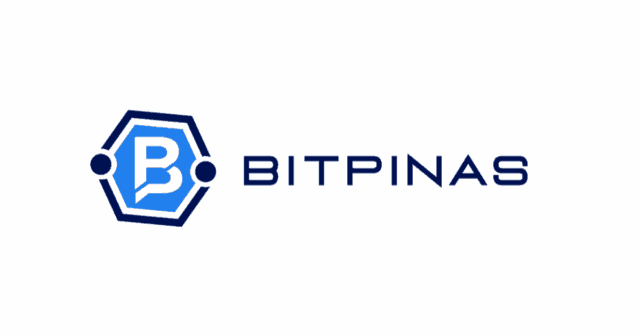Disclaimer: This article is for informational purposes only and does not constitute financial advice. BitPinas has no commercial relationship with any mentioned entity unless otherwise stated.
📬 Get the biggest crypto stories in the Philippines and Southeast Asia every week — subscribe to the BitPinas Newsletter.
Community thought leaders reacted positively to the newly revised “CADENA Act,” formerly known as the “Blockchain the Budget” bill authored by Sen. Bam Aquino.
The measure, officially titled Citizens’ Access & Disclosure of Expenditures for National Accountability (Senate Bill No. 1330), is set for sponsorship in the Senate on Nov. 12 and targets a Phase 1 rollout in 2026.
Skepticism to Support

According to his recent Facebook post, Luis Buenaventura, GCash Executive and GCrypto Head, acknowledged his earlier skepticism but said he has since changed his stance after reading the latest draft.
In the comments section of his post, Buenaventura noted that the new version is “barely recognizable from the first draft” released in early September. He also acknowledged that the initial criticisms may have been warranted but emphasized that early versions of any bill are expected to undergo significant revisions and that the process shows the value of not pushing measures forward blindly.
“I’m not an expert on how these bills are written, but there was no way a first draft was ever going to make it through without tons of revisions anyway… The more correct position would have been to simply express hesitation and give constructive feedback.”
Luis Buenaventura, executive, GCash, and head, GCrypto
Previously, in his prior view on the bill, Buenaventura argued that blockchain cannot prevent government corruption, as it still relies on unverifiable external data and is no more trustworthy than traditional databases.
A Shift Toward Principle-Based Governance

Technologist advocate and entrepreneur Ann Cuisia, CEO of TraXion Tech, praised the bill’s transformation into a principle-based framework.
She highlighted four major improvements:
- Adoption of tech-neutral language focused on transparency outcomes rather than specific technologies.
- Expanded disclosure requirements for key budget documents.
- Stronger accountability mechanisms with criminal penalties for noncompliance.
- A citizen-centric framing that emphasizes taxpayers’ right to transparency.
She described the CADENA Act as a governance reform rather than a mere technology bill. She highlighted that the measure leverages digital protocol concepts, such as ledgers, timestamps, and audit trails, to address long-standing problems of public sector opacity. Cuisia emphasized that the bill demonstrates how technology and policy can converge when designed around public interest rather than vendor priorities, noting that it could serve as a model for other governance areas like procurement, aid delivery, and environmental spending.
“From my perspective as a taxpayer first — and technologist second — the CADENA Act represents progress. It moves the national conversation from ‘should we use blockchain?’ to ‘how do we secure, trace and make accountable every peso of public spending?’ It signals that the public sector does listen to technologists, civil society and the citizen-taxpayer, and can incorporate their input.”
Ann Cuisia, CEO, TraXion Tech
Cuisia also commended Sen. Bam Aquino and the stakeholder community for focusing on governance outcomes and public access instead of framing the issue as a debate over blockchain itself.
“For the Philippines to lead in digital governance it won’t suffice to adopt technology. It must adopt timeless principles, build public-led platforms and embed auditability, participation, and disclosure into its law. CADENA takes a step in that direction. Bravo! May Pag Asa Ang Pinas!”
Ann Cuisia, CEO, TraXion Tech
Recently, after the Oct. 23 TWG session, Cuisia argued that the bill promotes fiscal transparency through citizen oversight and accountability without mandating technologies like blockchain.
CADENA as a Model for Citizen Collaboration
In his new perspective on the bill shared on LinkedIn, technologist and AI and data ethics advocate Dominic Ligot said that CADENA’s passage marks a milestone in collaborative policy-making.
Ligot said the revisions to the bill are “not just cosmetic” but reflect a fundamental shift from a tech-centric proposal toward one grounded in tech neutrality and collaborative governance.
“The road to CADENA was achieved over numerous conversations, coffees, dinner chats, discord threads (shoutout to BetterGov), telegram/WA/Viber/Signal correspondences, philosophical, technological, political chatter. It basically was a law that exemplified citizen collaboration and crowdsourcing. And the speed to achieving it (barely a month from the first hearing) is unprecedented.”
Dominic Ligot, technologist and AI and data ethics advocate
Ligot credited both civil society and lawmakers for setting aside personal and commercial interests to craft legislation that benefits the public, noting that genuine policy reform is often a “thankless and highly political job.”
He also expressed optimism about its direction, calling it a sign that ethical governance and active citizen participation are not only achievable but already taking shape.
In his previous comment, Ligot urged the government to prioritize AI over blockchain by using it to process and index public documents, making them searchable and open-sourced for genuine transparency.
Lawmaking Must Involve End-Users

While many are praising the new version of the bill, Rogerine Miguel-Irvine, chief for strategic policy and innovations at the National Economic and Development Authority’s (NEDA) National Innovation Council, stressed that sound legislative design is crucial, cautioning against overreliance on the Implementing Rules and Regulations (IRR) and emphasizing that the law itself determines effective governance.
“The IRR can only make very minor tweaks, it still has to carry the spirit of the law, sometimes meaning almost no change at all. So to clarify, IRR is not the critical document, it’s the law itself. IRR is easy to amend, the law isn’t.”
Rogerine Miguel-Irvine, chief for strategic policy and innovations, NEDA–National Innovation Council
Miguel-Irvine also criticized the tendency of some legislators to measure success by the number of laws passed rather than their effectiveness, leading to redundant or impractical policies that burden executive agencies.
“So quick tip: Best to use our voice to be part of editing them bills before they become mostly cast-in-stone pesky laws. I’m all for laws that will spur innovations 100%, but it needs to be necessary, well thought-out, and designed with the people they’re meant to serve…. Sa lahat ng pinagdadaanan natin as of the moment… there’s no bandwidth for bad laws anymore.”
Rogerine Miguel-Irvine, chief for strategic policy and innovations, NEDA–National Innovation Council
Response to Zero-Cost Challenge
On the other hand, Christopher Star, a member of the BetterGov.PH community, responded to Sen. Bam Aquino’s challenge for groups to bid at zero cost for the implementation of the CADENA Act’s transparency platform.
Star asserted that BetterGov.PH had already accomplished similar initiatives without funding and questioned whether “fake councils and fake experts” would still participate if no financial incentives were involved.
“BetterGov.PH has done it at zero cost. We can do it again. Let’s see if fake councils and fake experts would still take interest on this platform if they got nothing to gain.”
Christopher Star, volunteer, BetterGov.PH
He added that the group’s work required “no Polygon grant or pay-later scheme,” emphasizing a citizen-led, cost-free approach to governance technology.
BetterGov.PH, a volunteer-run civic tech initiative promoting government transparency in the Philippines, launched OpenGovChain, an open-source blockchain platform that demonstrates how public data can be securely stored, verified, and accessed to promote accountability.
What is Cadena Bill

In its second public hearing, Senator Bam Aquino’s proposed “Blockchain Bill” has been renamed the CADENA Act which is noted to reflect a shift to a tech-neutral approach while retaining blockchain as the preferred standard for transparency.
The updated version introduces
- Harsher penalties for non-compliance
- Establishes a National Budget and Transparency Accountability Council
- Mandates an open-source public platform for real-time budget data.
Aquino aims to sponsor the bill on November 12, with Phase 1 of implementation targeted for 2026.
Read related articles here:
This article is published on BitPinas: Stakeholders Welcome Revisions to Senator Bam Aquino’s CADENA Bill
What else is happening in Crypto Philippines and beyond?









